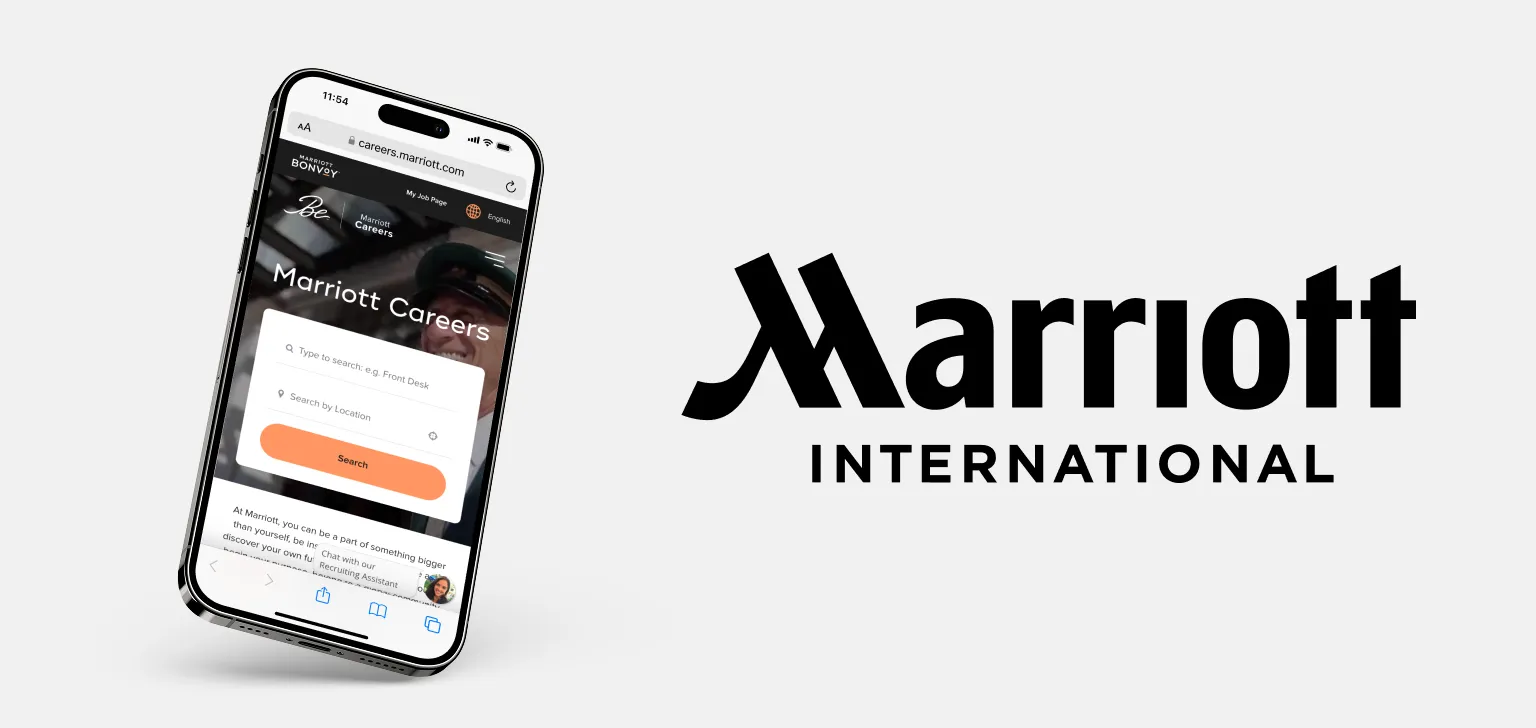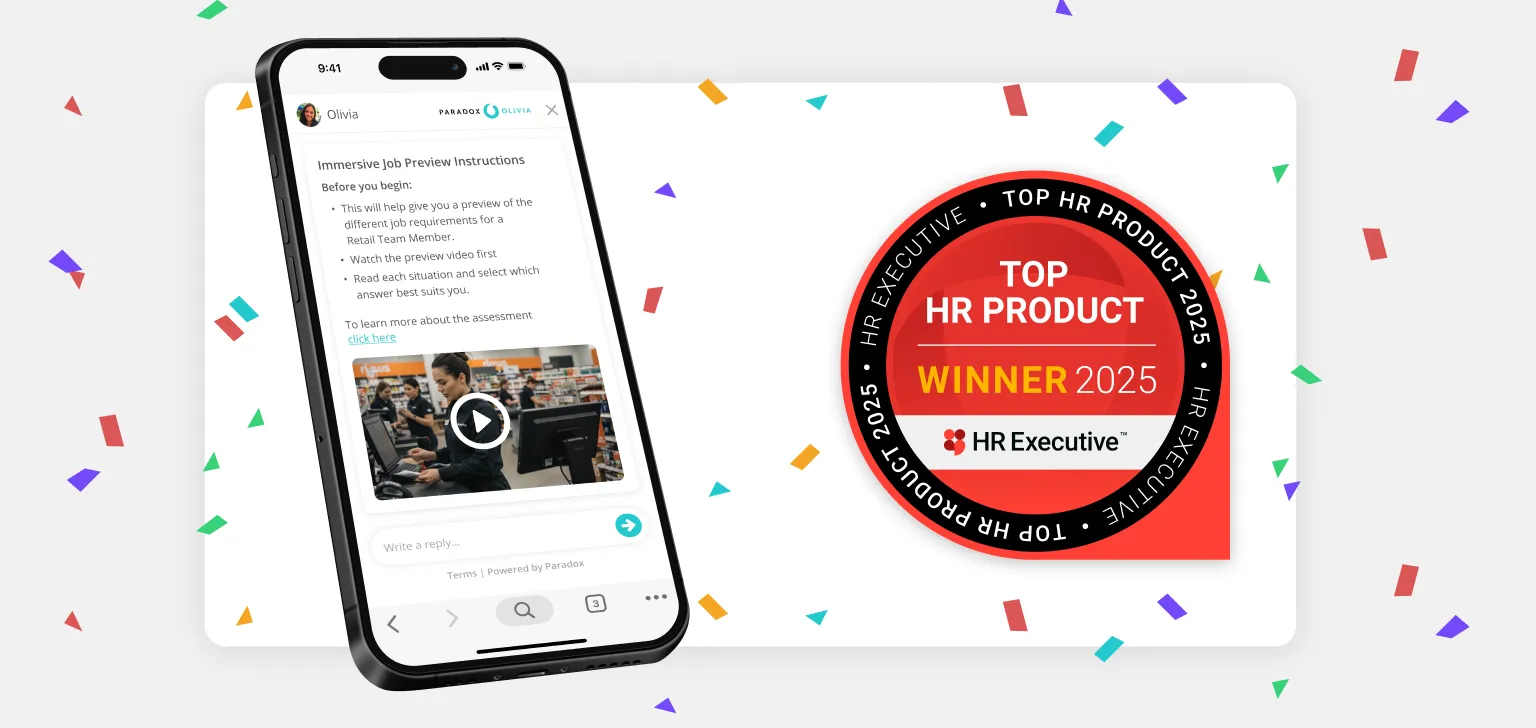When a system makes a leap forward, with a new way of getting things done, the feeling it inspires is “I can’t imagine doing this any other way.”
A commuter who taps an app to pay for a bus ride wonders how they ever saved coins to cover the $3.25 fare.
The restaurant patron who holds their place in line from home can’t believe they used to tolerate a lengthy wait by the door.
Once you’ve experienced the better way, there’s no going back. With every passing month, even once-loyal buyers get a taste of the alternatives that exist.
When you begin the first steps in the employee-employer relationship in a fundamentally different way, you change the conversation. Instead of front-loading the employer’s needs, the prospective team member begins with a voice — and a unique perspective to share about themselves – from the first steps. That makes a major difference. In a 2021 survey, 80% of employees said a positive candidate experience was a reason they accepted their job offer.
Make the hiring experience more relational.
At Paradox, we’ve been blowing out the cobwebs in the hiring process.
When we set our sights on those first interactions between jobseekers and employers, we understood the need to be more relational, less transactional. The relationship between a potential hire and an organization should begin with a conversation, just like our personal relationships do. And the entry point should be the stuff that matters:
What’s a real workday like? What skills do I need on my first day? Do you understand me, and know where I thrive? Are you my kind of company?
In the legacy approach, early steps cause attrition before the candidate has a chance to tell the organization about themselves. An applicant’s first task is often to create an account. Then come questions for a database. What’s your mailing address? What are the last four digits of your SSN?
When we set our sights on those first interactions between jobseekers and employers, we understood the need to be more relational, less transactional.
That’s like meeting someone new and asking them to share their date of birth or emergency contact information before asking them on a first date. Sure, that could be helpful down the road. But what matters now? Do we share a favorite way of spending time?
Recent research from McKinsey found that workers see the world differently now. Not only are folks leaving roles in large numbers without a new one ready, their reasons for walking away go beyond the size of their paychecks. In fact, McKinsey found that about 1 in 3 respondents pegged “uncaring leaders” as their rationale for finding the door, the most popular choice. Other top selections: unsustainable performance expectations, lack of career development, and the absence of meaningful work.
Let’s go back to thinking about two people who are meeting for the first time. What’s happening in their first interactions? They’re getting to know each other. That’s how we should view the process we create for job candidates. That doesn’t mean offering up more tech for the sake of tech, or striving to make everything faster. It means making the process more personal. More human.
What if the jobseeker felt like the organization was making an effort to get to know them? What if applying for a job began with a back and forth, allowing both candidates and hiring managers to get a sense of the match? What if an organization was dedicated to making a positive candidate experience from the first interaction?
Sounds refreshing, doesn’t it?
Candidates tell you who they are.
The next question is practical. Getting to know candidates and building an interactive relationship right away sounds great. But let’s be honest. Who has the time to do this, especially with recruiter workload on the rise?
There’s a way to get personal without investing more time. Meet Olivia.
She’s a conversational hiring assistant. That means she’s the first hello for the job candidate. And she’s ready to answer questions about the hiring organization. With her growing suite of capabilities, she can now flip the perspective, helping employers get to know their candidates. For this she uses a quick visual-based assessment that provides easy to understand takeaways about the applicant’s personality. Olivia is a leading-edge technology, but the assessment uses the most well-established framework of personality widely respected by behavioral scientists.
Within minutes, a candidate uses an assessment to tell the employer about themselves. Here’s a taste of what that looks like.
Why do candidates respond to this opportunity to tell Olivia about themselves? The “Me/Not Me” response choice is comfortable for modern candidates accustomed to “liking” posts on social media. Survey responses of social media users, for example, show that high levels of interactive participation are not uncommon, with 30% reporting they interact more than 10 times per day by liking, posting, or sharing content. Only 6% claim to “never” post content themselves.
Workers want caring leadership.
When you ask candidates to tell you a little about themselves early in the process, there’s an unexpected benefit. Research in social psychology has unearthed an interesting phenomenon: the experience of sharing information about yourself tends to make you feel fonder of the person you’re sharing it with.
So when a person is asked to engage in self-disclosure, they tend to subsequently report liking the recipient of the information. This suggests that the experience of completing an assessment within the job application may facilitate more positive feelings toward the employer.
And in this era in which workers can be choosy, with many placing a high priority on feeling valued by responsive leadership, providing candidates with a give-back has unprecedented value. Cultivating a culture of knowing and understanding oneself and others is important. Researchers have found that self-awareness is associated with long-term benefits for the individual, from advances in leadership to a higher level of confidence and creativity.
The status quo is falling away.
I can’t imagine doing this any other way. People have choices for where to devote their time and talents. An employer’s window of opportunity to ensure candidate interest is small, with little room for error. To compete, hiring organizations have to distinguish themselves from the first interaction.
Thankfully, there’s a better way, and it’s here now. It’s the human way, the approach that takes a page from the way people conduct themselves in daily life. Engage candidates in conversational AI to enable them to ask questions about your organization and move through the application process when they’re ready, day or night. Then get to know the people who want to work for you, and treat them like people.
You’ll look back and wonder how you ever did it any other way.









